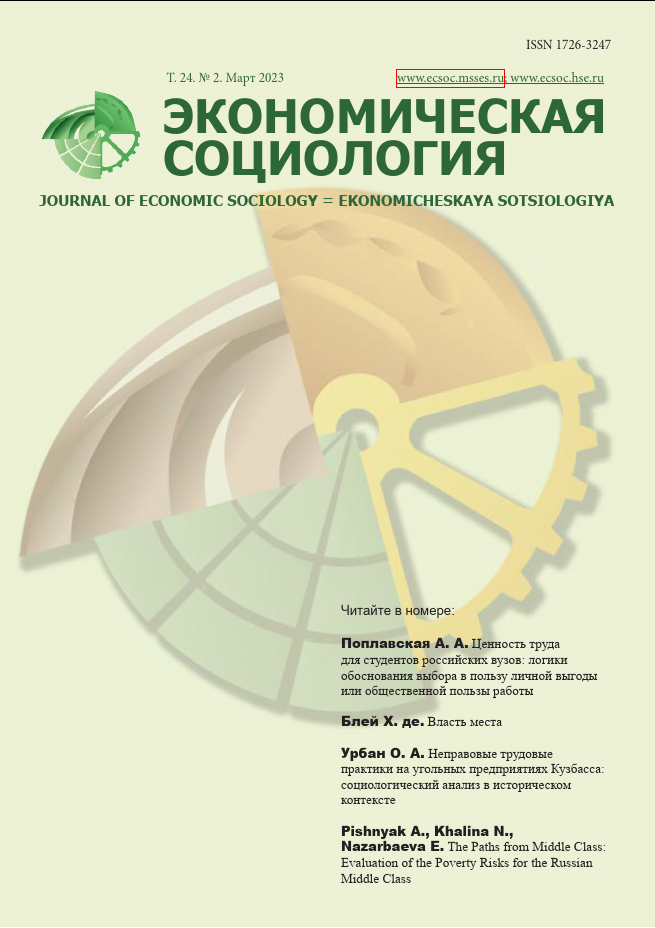Social Сapital of Organized Crime
Book Review: Galeotti M. 2019. Vory. Istoriya organizovannoy prestupnosti v Rossii [The Vory: Russia’s Super Mafia], Moscow: Individuum (in Russian). 448 p.
Abstract
This review is dedicated to the analysis of the Russian translation (2019) of Mark Galeotti’s book The Vory’s. Russia’s Super Mafia (2018). The book addresses the historical background and current development of organized crime in Russia. Galeotti rejects to subject his material to any specific sociological theory and uses instead the descriptive language of economics. This review seeks to find a relevant theoretical context for Galeotti’s study of crime and criminality in Russia. The review consists of four parts. The first part provides general overview of the book. The second part explores the concept of criminality in its opposition to the state as an agent of legal violence. According to Galeotti’s, Russian criminals have lost the competition but have not ceased to exist. The third and the fourth parts discuss several hypotheses why criminality persist in Russia. In the third part the persistence of criminality is explained with the wide range of resources which include not only violence but social capital resulted from fitting structural holes. Having essentially lost an opportunity to convert violence into income, organized crime had to switch to the role of a mediator between demand and supply for illegal goods and services. In the fourth part of the review the persistence of criminality is explained by decentralization. The network closure around a leader can be seen as a factor of an effective concentration of resources. However, in the context of the competition between violent entrepreneurs, centralization becomes problematic since it hinders the diversification of syndicate’s resources, including its social capital, and makes it harder to act covertly.













